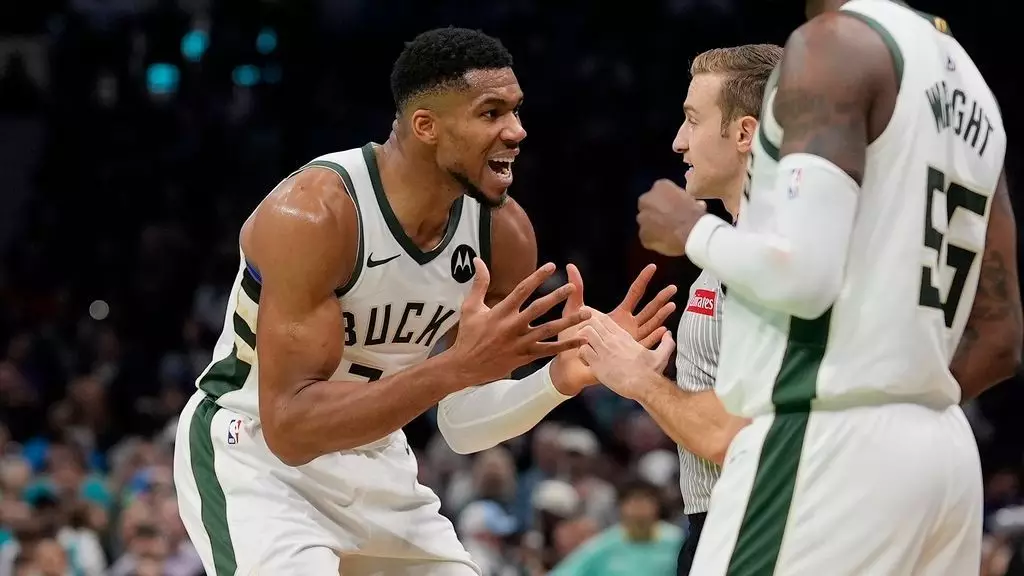The recent nail-biter between the Milwaukee Bucks and the Charlotte Hornets serves as a textbook example of how officiating dilemmas can overshadow the thrilling nature of professional basketball. In this particular instance, the spotlight fell on Milwaukee’s head coach, Doc Rivers, who expressed his frustrations about a controversial foul call against star player Giannis Antetokounmpo. The foul was called in the dying seconds of the game, leading to free throws that ultimately secured the Hornets’ victory. No true sportsmanship can be fostered when the outcomes of games hinge on perceived officiating errors, and this game exemplified an all-too-familiar issue in the NBA.
With time winding down and the Bucks leading by a slender margin, LaMelo Ball, the Hornets’ dynamic guard, drove towards the basket only to slip and fall. The incident, under scrutiny from different angles, appeared devoid of any significant contact from Antetokounmpo, which led many to question the validity of the foul call. Rivers didn’t mince his words, arguing that the call was not just incorrect but also detrimental to the integrity of the game. “This is back-to-back games now where on the final play there has been an incorrect call made,” Rivers stated, encapsulating the feelings of many fans who feel that refereeing blunders can skew the outcomes of critical games.
Compounding the complexity of the situation, the Bucks had no remaining challenges to dispute the foul call, creating a scenario where they lacked recourse in the face of officiating errors. Subsequent explanations from the crew chief, Curtis Blair, revealed the discrepancies between live calls and postgame reviews. According to Blair, while the officials called the play based on perceived illegal contact, a review indicated no such action had occurred. This inconsistency in officiating calls raises the pivotal question: how can the integrity of the sport be upheld when the criteria for calls remain so ambiguous?
This wasn’t an isolated incident, as the Bucks had recently faced another controversial call against the Detroit Pistons. In that game, Antetokounmpo was also a victim of a questionable officiating decision with seconds left on the clock. To the Bucks’ fortune, the Pistons’ missed free throws led to overtime, allowing Milwaukee to seize victory. However, the underlying issues of accountability and transparency within officiating remain contentious, especially in games hinging on such narrow margins.
As the season progresses, it is essential to address the confidence fans and players have in officiating. The NBA must prioritize transparency in decision-making, perhaps enhancing the parameters by which officiating decisions are made or even incorporating advanced technology like instant replay more effectively into critical moments. If the essence of basketball is to provide thrilling, nail-biting finishes, then removing the uncertainty surrounding officiating could very well uphold that tradition and maintain the authentic spirit of competition. The league has the opportunity to actively evolve and adapt, ensuring its officiating standards meet the high expectations of its players and fans alike.

